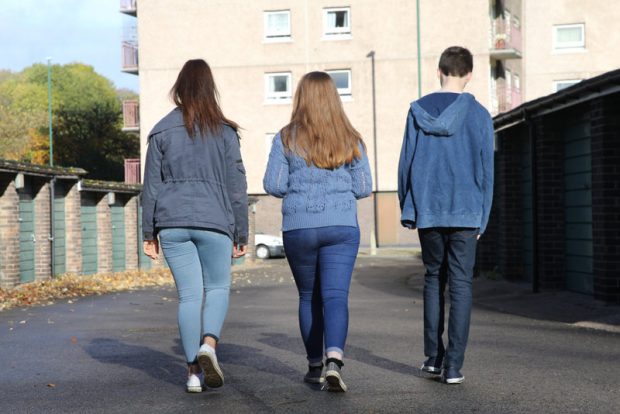
As Ofsted’s National Director for Social Care I’m often asked about the financial pressures that local authorities (LAs) face. What’s the impact on child protection and wider services for children and families?
We know that LAs have been hit by budget reductions – some of the most significant across the public sector. It’s an unenviable position. Councils up and down the country have to make difficult decisions daily about how to prioritise scarce resources. In some LAs, these pressures have impacted on the quality of children’s social care services.
Many LAs are managing to make savings without compromising vital frontline services for children and families. Surely good news. But we do have to ask ourselves, just how are these LAs managing to make ends meet?
Early intervention
The victim of the piece in most areas, of course, is prevention. The youth clubs, diversionary activities, early help and support services for families. All have reduced significantly in many places.
Spending per head on early help and preventative services overall has fallen by over 60% in real terms between financial years 2009–10 and 2016–17. Some of the funding that is still available is only short term.
On one hand, this is completely understandable within the context of LA funding as a whole and the myriad services they provide. The money has to come from somewhere. As you might expect, LAs are focusing their resources on specialist statutory services for families and children with the most serious problems. After all, who is going to turn away a child at the point of crisis?
Yet we’re concerned that this is a false economy that will no doubt store up trouble for the future. Family issues left unchecked eventually escalate. Many teenagers are now entering the care system needing very intensive support. There were a fifth more 16- and 17-year-olds in care at the end of March last year compared with 4 years ago. The number of children over 16 taken into care has increased a staggering 78% over the last 8 years. With the cost of acute statutory services being so much higher in the long run, the imperative for decent preventative work is not just moral, but financial too.
There are some positives. Our inspection findings show that more LAs have improved their responses to children in need of help, protection and care. Around 60% of those inspected under our new social care framework have improved to ‘good’ or ‘outstanding’. These LAs have focused on getting good, basic social work practice right. They’re managing demand and caseloads well.
Many LAs are using models of practice effectively. They’re creating the right tools, culture and environment for excellent social work to thrive. Our inspectors see so many highly skilled practitioners, confident in their knowledge and abilities, making a positive difference to families.

Contextual challenges
But there’s no escaping the fact that LAs, social workers and other frontline staff have to work in very challenging environments. They’re supporting larger numbers of families whose lives have been shaped by an inequality of experience and, frankly, an inability to access the very basics for successful daily living. Poor housing, mental ill health, substance misuse and domestic abuse continue to feature in most referrals to children’s social care.
It is perhaps for others to comment on this wider context. Ofsted can only speak from the evidence that we find. But individual children and families’ problems do not exist in isolation. This wider context fuels the challenges that so many LAs face.
I am sometimes asked if we should be reflecting these factors in our inspection judgements, either across the board or by applying a lower standard in LAs with particularly challenging contexts.
Our children’s services inspections do make it clear when resource and demand issues, like overly high caseloads, unrealistic expectations of the amount and range of work managers can safely oversee, are stopping social workers from working effectively. We also acknowledge the LAs investing in children’s social care in the face of stark financial choices.
But despite this context, all vulnerable children deserve the same good help, protection and care service, regardless of where they live. The bar for good judgments must relate to practice, not context. That’s the right thing for children.
My view is that for social care practice to be successful, and for more children to remain or return safely with their families, all local partners must continue to work together to tackle these contextual factors. This is just as vital as responding effectively to every child and family’s specific needs. We are seeing good progress on the latter in many LAs. The former will no doubt be a priority across the new safeguarding partnerships.
Yes, the solution is far broader than LA finances alone. But I think we can all agree that properly funded local services, which emphasise prevention rather than cure, are a good place to start.
We are surely at a point where in many places, further money cannot be taken out of budgets safely or easily. This must be a fundamental consideration for policy makers as they contemplate the future sustainability of the system.
Yvette Stanley is Ofsted's National Director for Social Care. Follow Yvette on Twitter.
Keep up-to-date with social care news at Ofsted by signing up for email alerts. You can also follow Ofsted on Twitter.
2 comments
Comment by Karen Barwick posted on
I agree totally. However, I work in a service that is still cutting support for children and families. I am also the Mother of a Social Worker and see the direct impact that this has on her case load.
Prevention is key. I know this and I work at the bottom of the ladder. I find it so frustrating.
I am trained to deliver alsorts of early interventions to families to give children the best starts in life but it is no longer required. It appears that in some areas, development checks are all that's needed to deliver to families and when they can't function, refer to Social Care. This does not work.
Comment by E Holroyd posted on
I have worked with families at risk for a long long time and also have a background of risk myself. I am also now an adoptive parent with a child who has significant emotional difficulties. Early intervention does not exist in reality, early help for parents does not exist, there are so many loop holes to jump through and lack of knowledge for parents out there that many of our young children do not get the help and support until it is too late. We then find 1000's of pounds to throw at them as teenagers. Local authorities have many adoption breakdowns at teenage years - how sad is that? The system needs changing and workers need skilling up to understand early trauma and the impact it has on these children - not just Looked after children either. We talk about the first 1000 days being important but don't really understand how important it is. We access little or no training on attachment, therapeutic models, disassociation etc. and yet these are the tools that work with children and they are not hard to embed. As you can hear I feel very passionately around this area as I feel we are letting our children down.